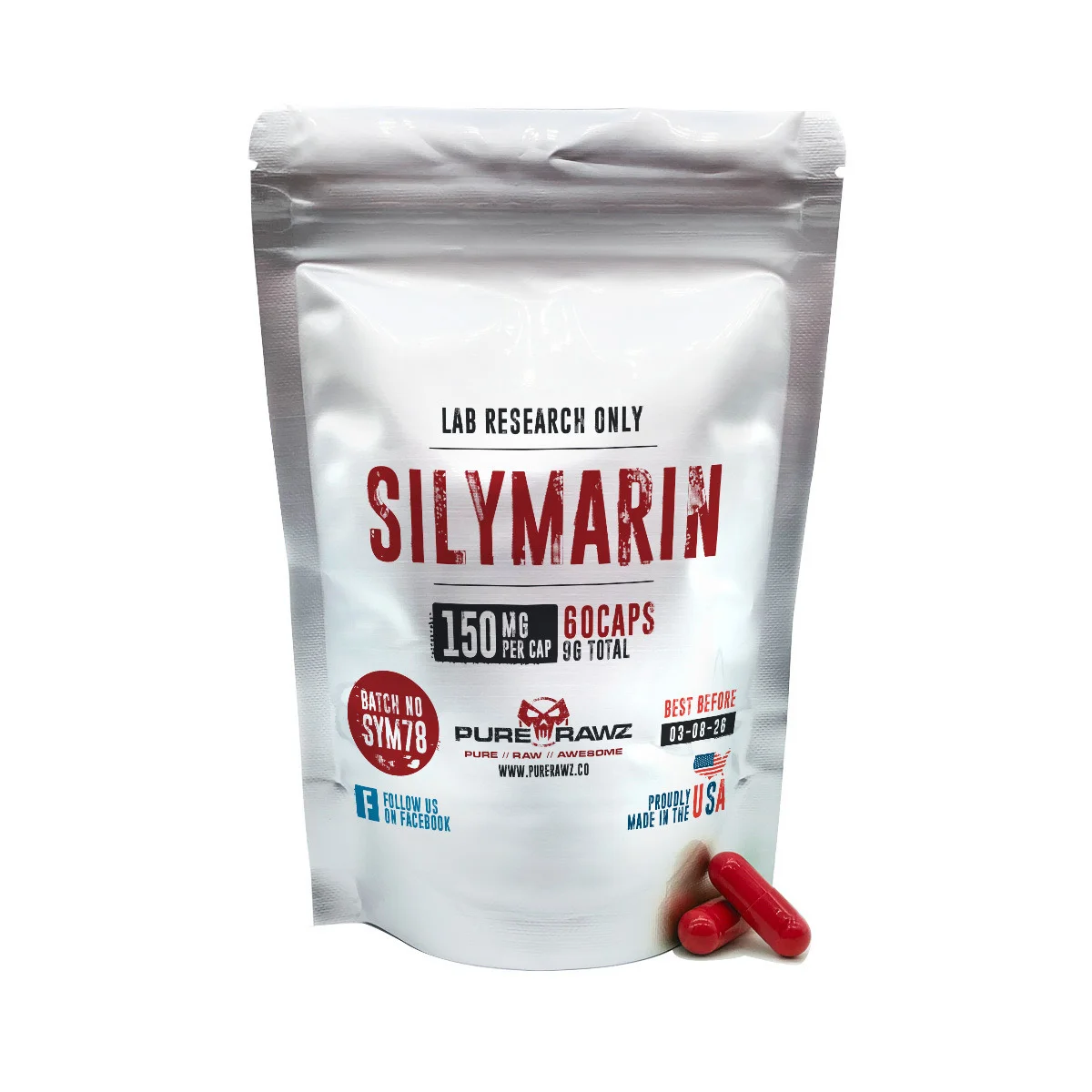Silymarin (Milk Thistle)
$11.12
Earn 11 points upon purchasing this product.
- 1st and 3rd Party Verified for 99% Purity
- Free Shipping on Orders Over $100+
Enjoy 24/7 customer support, 1st & 3rd party verified 99% purity, and free shipping on orders over $100!
Description
What is Silymarin (Milk Thistle)?
Silymarin is a mixture of plant-based compounds (flavonolignans) extracted from the seeds of the milk thistle plant. Researchers study it for its potential antioxidant and liver-supporting properties. In laboratory settings, it is often tested for its ability to protect cells from toxins and stress.
How does Silymarin (Milk Thistle) work?
In research models, Silymarin may work in the following ways:
- Acts as an antioxidant, helping reduce free radicals that damage cells in lab subjects
- Support liver cell regeneration in lab settings
- Influences cellular defense mechanisms against toxins
- May help regulate inflammatory responses in experimental studies
- Supports enzyme activity linked with detoxification processes in research subjects
These mechanisms are based on early research only. Further studies are needed to confirm how it works in lab models.
What are the potential benefits of Silymarin?
In laboratory research, here are some potential benefits of Silymarin.
- May modulate liver detoxification enzymes in experimental models
- Reduce oxidative stress and protect cell membranes in lab subjects
- Influence the immune response in test subjects
- May provide insights into liver detoxification processes in lab models
Note: These effects are only observed in laboratory-based experiments. It is not approved for human or veterinary use.
Research on Silymarin
Preclinical studies suggest that Silymarin may help protect liver cells from chemical stressors. Research models show that it may influence detoxification enzymes. It may also reduce oxidative stress and support cell health.
However, results are limited to laboratory and animal studies. More controlled research is required to confirm its full role.
Where to buy Silymarin online for research purposes?
If you are looking to buy Silymarin for laboratory use, PureRawz provides high-quality reference materials.
Each product comes with a Certificate of Analysis for verification of purity and concentration.
Is Silymarin legal?
This research-grade Silymarin is not approved for human or animal consumption. However, milk thistle extracts containing silymarin are available as dietary supplements in some countries. (R)
Are there any side effects of Silymarin?
The safety profile of research-grade Silymarin has not been fully established. Dietary supplement forms of milk thistle are generally considered safe, but this product differs.
How should Silymarin be stored?
Store in a cool, dry place, away from sunlight. Keep the container tightly sealed until use in a controlled laboratory setting.
What is the shelf life of Silymarin?
The shelf life of Silymarin is typically up to 2 years if stored at -20°C, sealed, and protected from light.
Disclaimer
This information is for educational purposes only and not medical advice. Products are for research use only. Research must follow IRB or IACUC guidelines. Verify information independently before purchasing. By ordering, you agree to our Terms and Conditions. If you are not 100% satisfied with the product you received, please contact us at support@purerawz.co
ATTENTION: All our products are strictly for LABORATORY AND RESEARCH PURPOSES. They are not intended for human or veterinary use.







Reviews
There are no reviews yet